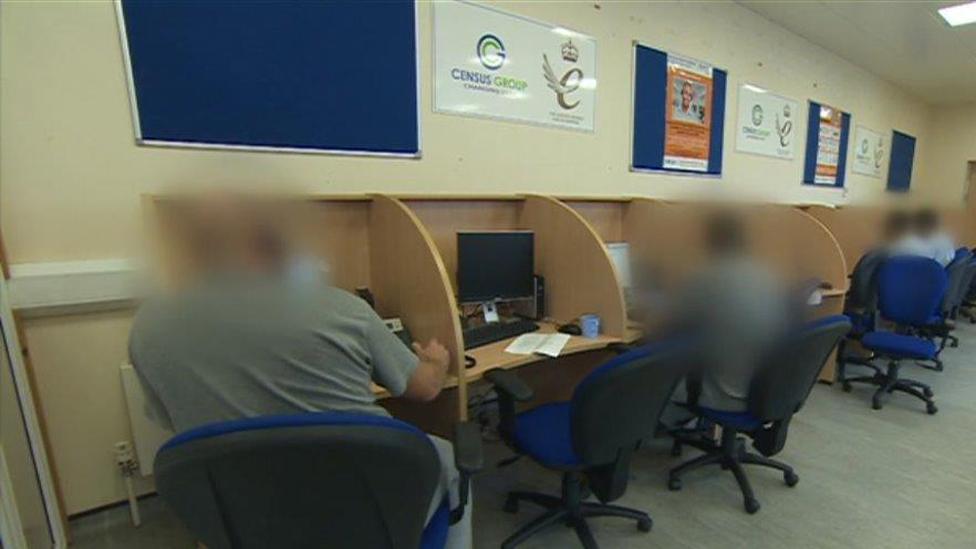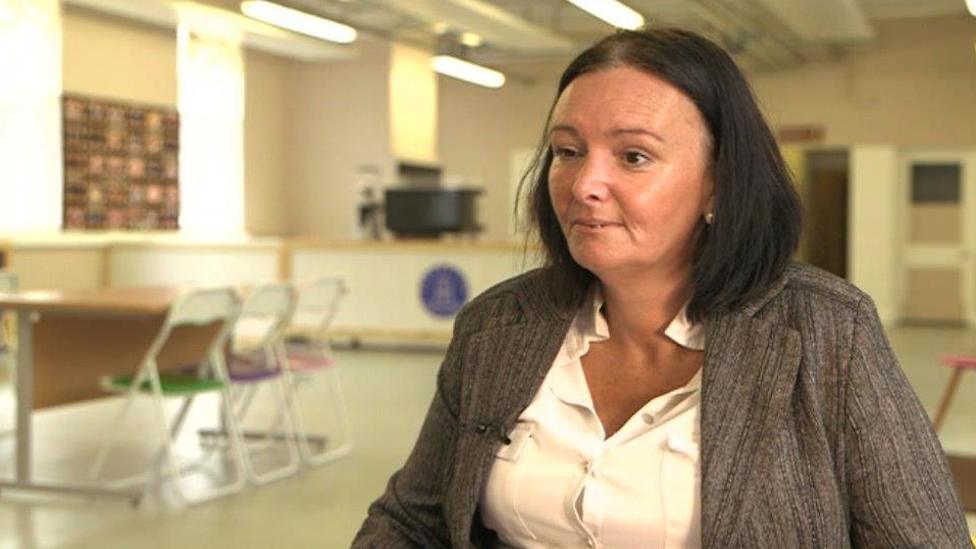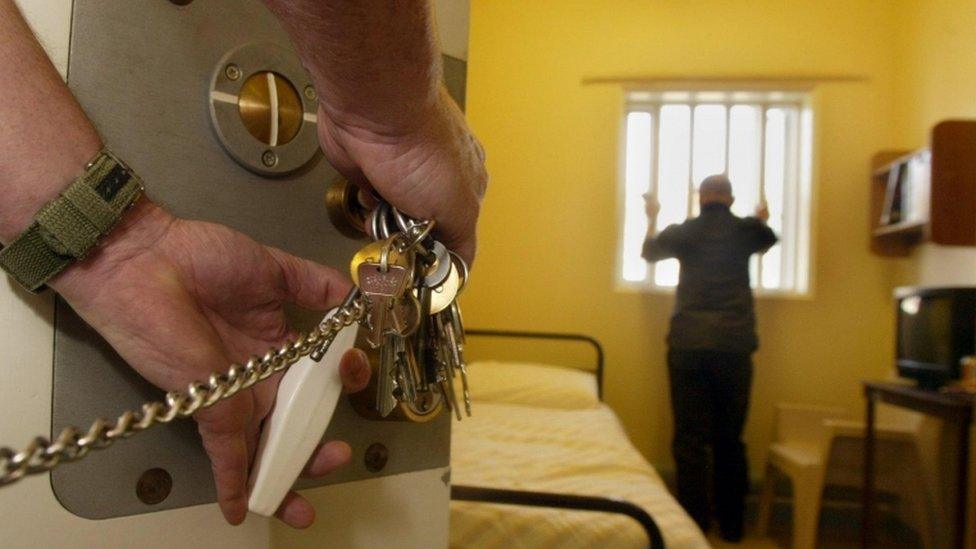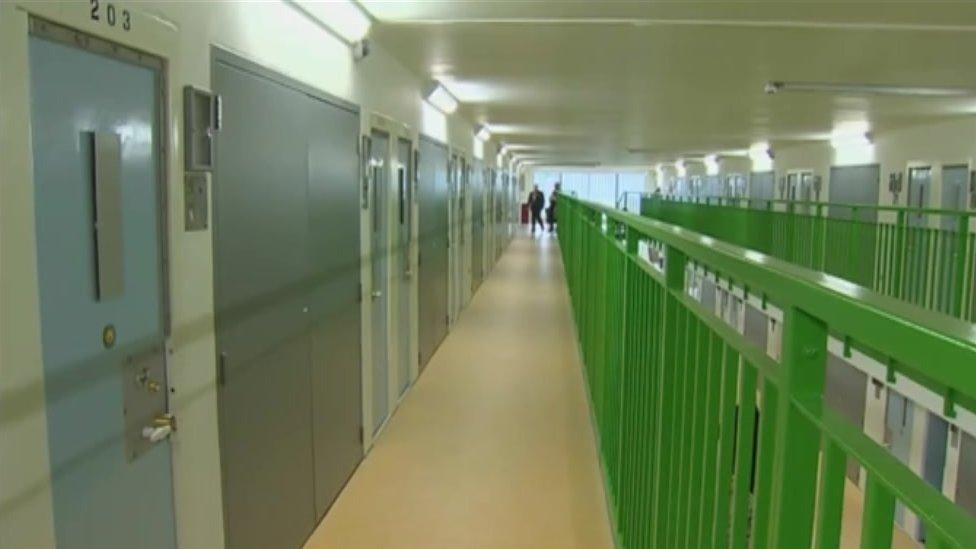Prison call centres aim to cut reoffending risk
- Published
'The scheme was a turning point in my life'
Prisoners across Wales are being paid to work as call centre operators to try to help them get jobs as soon as they are released.
None of the inmates at Cardiff, Swansea or Berwyn has access to personal data and all will be strictly vetted.
It is hoped it will reduce offending rates, as well as providing skills needed to get a job.
Cardiff has around 17 call centre desks, Swansea has 24 and Berwyn has 140.
More firms are being encouraged to work with the Prison Service and a recent event at HMP Cardiff allowed representatives from contact centres to see inmates working at the prison's own small call centre.
Greg Fisher, the Prison Service's regional employment broker for Wales, works with companies to smooth the transition into work.
He said giving prisoners work experience before they are released is important.
"It engages them with the community and local employers," he said. "If they haven't got that they will go back to the life of crime."


How does a prison call centre work?
The calls handled by men inside HMP Cardiff are computer-generated.
They sit in front of the desk, head-set on, script in front of them, waiting for a call to be connected.
The only detail they have is the name of the person they are calling.
Their job on the day we visited was market research for a big utilities firm - they told me it is the best paid of the work available in prison.
Once trained, they can earn £15 a week, plus 20p for each completed questionnaire and more still if the customer is happy to be transferred to discuss switching providers.

HMP Cardiff trains prisoners with skills like car and bike maintenance, cleaning and construction and has a rail track programme including their own tracks within the prison walls.
It has also recently opened a coffee-making workshop.
"We're trying to get them that route into employment, into some meaningful very well paid work," Mr Fisher said, adding that a £2,500 training programme is far less than the £32,000 annual cost of a place at a Category B prison like Cardiff.
"That small investment I think is really worthwhile."
'Talented people'
Kelly Carrel, founder of a social enterprise called Census Life, runs the call centres in 14 prisons in England and Wales, and said the ex-offenders she now employs are among the most loyal and hard working she has taken on.
"Those individuals really want to work and make positive changes to their lives - not just for them, but their partners and children," she added.
"In general there are far too many organisations that have a blanket 'no' to working with an offender, I can understand it in particular roles.
"But there are some great, talented people that we're just not tapping into."

Nicola's opportunity came with a chance to work in a prison call centre
'Take that chance'
One of Census Life's employees, Nicola, is a former offender and said a job with a supportive employer meant she broke the cycle of offending.
Her problems had started after she was the victim of domestic violence, which led to a 10-year drug addiction.
"My message to employers would be take that chance," she said. "You're creating a change in society, you have the tools to change someone's life and you will create a very loyal colleague."
Sandra Busby, managing director of the Welsh Contact Centre Forum, said: "We have three customer types in Wales - public centre contact centres, corporates and smaller businesses.
"I think the public sector can be doing a lot more, but they're very process-driven. But if they can't lead by example I think it's hard then to tell the private sector to do that."
She added the "really cutting edge" corporate firms will make changes to harness the talent of ex-prisoners, and smaller firms will be more agile, but will also have to weigh up the risks.
- Published28 May 2019

- Published29 March 2019

- Published4 June 2019